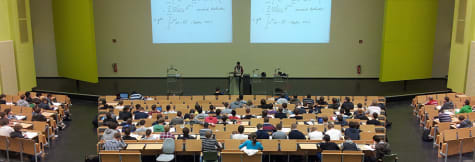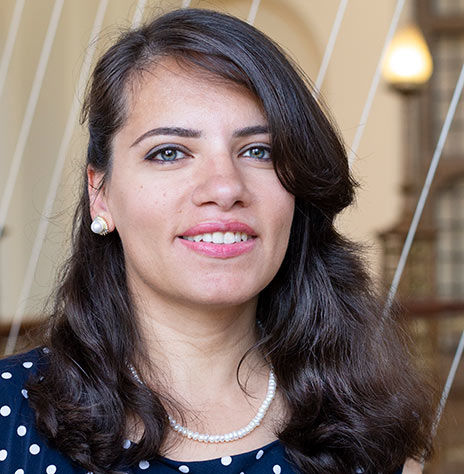
- phone_in_talk
- Study Destinations
- Universities
- Scholarships
- person Sign Up person Log in -->
- Study Abroad

PhD in Russia
No colleges record, why study phd (doctor of philosophy) in russia.
1. Research Excellence: Russian universities have a long history of research excellence and have made significant contributions to various fields of study. Pursuing a PhD in Russia allows students to work with renowned professors and researchers, gaining exposure to cutting-edge research and academic excellence.
2. Diverse Research Opportunities: Russia offers a wide range of research opportunities across various disciplines. Whether you are interested in natural sciences, engineering, social sciences, humanities, or arts, you can find research topics and programs that align with your academic interests.
3. Rich Cultural and Academic Heritage: Russia has a rich cultural and academic heritage, with a strong tradition in literature, science, and the arts. Studying in Russia can offer a unique cultural experience, exposure to different perspectives, and opportunities to explore its historical landmarks and artistic treasures.
4. Language of Instruction: While many PhD programs in Russia are taught in Russian, an increasing number of universities offer English-taught programs, especially in STEM (Science, Technology, Engineering, and Mathematics) fields. This makes studying in Russia more accessible to international students.
5. Affordability: Compared to some other countries, the cost of pursuing a PhD in Russia can be relatively affordable, with lower tuition fees and living expenses. There are also scholarship opportunities available for international students to support their studies.
6. International Collaboration: Russia actively promotes international collaboration in research and academia. As a PhD student in Russia, you may have opportunities to collaborate with scholars from different countries and participate in international conferences and research projects.
7. Research Funding: Many research projects and initiatives in Russia receive significant government funding. As a PhD student, you may have access to funding opportunities that can support your research and academic pursuits.
8. Career Opportunities: Completing a PhD in Russia can enhance your career prospects. Graduates with a PhD are often sought after by academic institutions, research organizations, and industry, both in Russia and globally.
9. Research Facilities: Russian universities are equipped with state-of-the-art research facilities and laboratories, providing PhD students with the resources they need to conduct high-quality research.
10. Personal Growth: Pursuing a PhD is a significant academic journey that fosters personal growth, critical thinking, and problem-solving skills. Living and studying in a new country like Russia can also offer personal development and intercultural experiences.
Admission Intake for PhD (Doctor of Philosophy) in Russia
1. Fall Intake: The fall intake is the most common intake for PhD programs in Russia. It usually begins in September or October. The application process for the fall intake typically starts several months before the start of the academic year, usually around January to April. Prospective students are required to submit their applications, including all necessary documents, during this period.
2. Spring Intake: Some universities may offer a spring intake for PhD programs, which starts in February or March. However, the spring intake is less common, and not all universities may have this option available. The application process for the spring intake usually takes place several months in advance, starting around September to November of the previous year.
Top 10 Universities in Russia for PhD (Doctor of Philosophy)
| 74 | Lomonosov Moscow State University | Mathematics, Physics, Chemistry |
| 225 | Novosibirsk State University | Chemistry, Physics, Biology |
| 233 | Saint Petersburg State University | Physics, Linguistics, Psychology |
| 259 | Moscow Institute of Physics and Technology | Physics, Computer Science |
| 271 | Tomsk State University | History, Linguistics, Psychology |
| 277 | ITMO University | Computer Science, Physics, Chemistry |
| 351-400 | National Research Nuclear University (MEPhI) | Engineering, Physics, Chemistry |
| 401-450 | Higher School of Economics (HSE) | Economics, Sociology, Political Science |
| 501-550 | Moscow State University of Psychology and Education | Psychology, Education |
| 601-650 | Kazan Federal University | Engineering, Physics, Biology |
Cost of Studying PhD (Doctor of Philosophy) in Russia
| Tuition Fees | $1,500 - $10,000 (for international students) |
|
| Lower or subsidized fees for domestic students |
| Accommodation | $2,000 - $6,000 |
| Food | $1,200 - $2,000 |
| Transportation | $300 - $600 |
| Books & Supplies | $300 - $500 |
| Health Insurance | $200 - $400 |
| Miscellaneous | $800 - $1,500 |
|
|
|
Eligibility for doing PhD (Doctor of Philosophy) in Russia
1. Master's Degree: Applicants should generally hold a Master's degree (or its equivalent) in a relevant field of study. Some universities may consider candidates with exceptional academic records and a Bachelor's degree in specific cases, but a Master's degree is the standard requirement.
2. Academic Performance: Candidates should have an outstanding academic record in their previous studies, particularly in their Master's program. Good grades and research experience are often highly valued during the selection process.
3. Research Proposal: As part of the application process, applicants are typically required to submit a research proposal outlining their intended research topic and objectives for the PhD program. A well-defined and compelling research proposal can strengthen the application.
4. Language Proficiency: Proficiency in the language of instruction is essential. For programs taught in Russian, applicants may need to demonstrate their Russian language proficiency through standardized tests like TORFL (Test of Russian as a Foreign Language). Some universities also offer PhD programs in English, so proficiency in English may be required for those programs.
5. Letters of Recommendation: Applicants are usually asked to provide letters of recommendation from professors or academic mentors who can vouch for their academic capabilities and research potential.
6. Entrance Examination or Interview: Some universities may conduct an entrance examination or interview to assess the candidate's knowledge, research aptitude, and suitability for the PhD program.
7. Funding and Scholarships: International students should ensure they meet any additional requirements for scholarships or funding opportunities, as funding eligibility may vary depending on the program and the university.
8. Other Requirements: Depending on the field of study and the specific program, there might be additional requirements such as submitting academic publications, research papers, or participating in an interview with the potential supervisor.
Documents Required for PhD (Doctor of Philosophy) in Russia
1. Academic Transcripts: Official transcripts or academic records from all previous educational institutions, including Bachelor's and Master's degrees.
2. Diplomas and Degrees: Copies of Bachelor's and Master's degree diplomas or certificates.
3. Curriculum Vitae (CV): A detailed CV that includes information about academic achievements, research experience, publications (if any), and other relevant experiences.
4. Research Proposal: A well-defined research proposal outlining the research topic, objectives, methodology, and expected contributions to the field of study.
5. Letters of Recommendation: Usually, two or three letters of recommendation from professors or academic mentors who can speak about the applicant's academic and research potential.
6. Language Proficiency: If the program is taught in Russian, proof of Russian language proficiency is required, which may be demonstrated through standardized language tests such as TORFL (Test of Russian as a Foreign Language). For programs taught in English, proof of English language proficiency (e.g., IELTS or TOEFL scores) may be necessary.
7. Passport Copy: A copy of the applicant's passport or other identification documents.
8. Passport-Sized Photographs: Passport-sized photographs as per the university's specifications.
9. Statement of Purpose (SOP): A statement of purpose or motivation letter explaining the applicant's interest in pursuing a PhD and the reasons for choosing the specific program and university.
10. Entrance Examination or Interview: Some universities may require applicants to take an entrance examination or participate in an interview to assess their research aptitude and suitability for the PhD program.
11. Additional Documents: Some universities may request additional documents, such as academic publications, research papers, or other materials relevant to the field of study.
Scholarships for PhD (Doctor of Philosophy) in Russia
1. Russian Government Scholarships: The Russian government offers various scholarships for international students, including the "Russian Federation Government Scholarship" (also known as the "Open Doors Scholarship"). These scholarships cover tuition fees, accommodation, and a monthly stipend for living expenses.
2. Presidential Scholarships: These scholarships are awarded to talented Russian and international students pursuing doctoral studies in priority areas identified by the Russian government.
3. University Scholarships: Many Russian universities offer their own scholarships and grants to attract talented PhD students. These scholarships may be merit-based or need-based and can cover tuition fees or provide a stipend for living expenses.
4. Research Assistantships: Some PhD students may have the opportunity to work as research assistants under professors or research projects, which may include a stipend or a tuition fee waiver.
5. International Cooperation Programs: There are international cooperation programs between Russia and other countries that may offer funding opportunities for joint research projects or PhD studies.
6. Specialized Scholarships: Some scholarships are available for students pursuing research in specific fields such as science, technology, engineering, arts, humanities, and social sciences.
7. Corporate Scholarships: Some companies and organizations in Russia may offer scholarships to support students pursuing research in fields relevant to their industry.
8. Bilateral Agreements: Some countries have bilateral agreements with Russia that include provisions for scholarships and funding opportunities for students pursuing higher education in either country.
Jobs and Salary after PhD (Doctor of Philosophy) in Russia
1. Academic Research and Teaching: Many PhD graduates in Russia go on to pursue careers in academia as researchers and professors. They can work in universities, research institutions, and academic departments. Salaries for academic positions can vary widely depending on the institution and the academic rank, but an assistant professor may earn around $1,000 to $2,500 per month, while a full professor may earn $2,500 to $5,000 or more per month.
2. Industry Research and Development: PhD holders can work in research and development (R&D) departments of companies and industries related to their field of expertise. Salaries in the private sector can vary significantly depending on the industry, company size, and position. On average, R&D professionals with a PhD may earn around $1,500 to $3,500 per month.
3. Government and Public Sector: PhD graduates may find opportunities in government research organizations, policy-making institutions, and public sector agencies. Salaries in the government sector can vary based on the level of responsibility and the position. Senior government researchers may earn around $2,000 to $4,000 per month.
4. Consulting and Advisory Roles: Some PhD holders work as consultants or advisors, providing expertise and insights to businesses, NGOs, or government bodies. Salaries in consulting can vary significantly depending on the consultancy firm and the project's scope. Monthly earnings for consultants can range from $2,000 to $5,000 or more.
5. Entrepreneurship and Startups: Some PhD graduates may choose to start their own businesses based on their research findings or innovative ideas. Earnings can vary greatly depending on the success of the venture.
- WhatsApp --> WhatsApp
Book your Profile Evaluation to Study Abroad in Public Universities
Get a guaranteed scholarship of minimum 20% to study abroad, please enable javascript to view this page..
Want to skip Verification for now ? Click here
Department of Slavic Languages and Literatures
Graduate program, welcome to the graduate slavic program.
The Princeton Slavic Department offers the Ph.D. degree in Russian Literature and Culture. The program provides students with a firm foundation in their major area as well as the opportunity to explore related fields, for example: comparative literature, literary theory, and other Slavic languages and literatures.

Leonid Lazarev, Next to Pushkin (Moscow, 1957).
Program Size
Princeton's Ph.D. program is small: this enables us to offer graduate students accepted into the program a support package for the entire five years required to complete the degree. Princeton provides a scholarly, small-town atmosphere in close proximity to both New York City and Philadelphia.
Program Goals
The aim of our graduate program is to further interest, knowledge, and scholarship relating to Russia and Slavic Central Europe, primarily through the cultural humanities. To this end we urge our students to explore new intellectual paths and approaches, having first provided them with a strong background in the Russian literary tradition, an introduction to major schools of theory, and the opportunity to conduct research abroad. (Please note that the program in Slavic Linguistics has been discontinued.)
Our Students
Our students play a central role in the life of the Department in ways that hone their professional skills – teaching language and/or literature, helping select speakers, participating in the dissertation colloquium, and organizing conferences. They also take active part in the profession, presenting papers at national and international conferences and publishing in journals in the field.
Graduate Seminars
Proseminar and graduate seminars in our Department cover the development of literary movements, genres and styles; theoretical approaches to literature and culture, as well as specific authors; language pedagogy and academic Russian.
Cultural Periods, Aesthetic Movements and Trends
- 18 th Century Russian Culture
- Russian Sentimentalism and Romanticism (Karamzin, Pushkin, Zhukovsky, Gogol)
- Russian Realism (Tolstoy, Dostoevsky, Turgenev, Chekhov)
- Russian Modernism (Symbolism; Acmeism; Futurism; V. Ivanov, Khlebnikov, Tsvetaeva, Pasternak, Eisenstein, Vetrov, Rodchenko)
- Socialist Realism
- Underground/Uncensored Literature
- Soviet Literature and Culture
- Post-Soviet Literature and Culture
- Postmodernism
Theory and Genre
- Russian Critical Tradition
- Russian Poetry and Poetics
- Russian Prose and Narratology
- History of Emotions
- Formalism and Constructivism
- Productivism
- Translation
- Literature and Science
- Documentary Genres
- Film and Media Theory
- Medical Humanities
- Russian Music (Tchaikovsky; Prokofiev) and Ballet
- Moscow-Tartu Semiotics
- Children’s Literature
- Language Pedagogy
- McGraw Center for Teaching and Learning
All Princeton graduate students have access to the resources of the McGraw Center for Teaching and Learning , In our Department students who have passed their general examinations receive supervised training in undergraduate teaching and have the opportunity to gain classroom experience by teaching elementary or intermediate languages courses and precepting (leading discussion sections in) larger nineteenth- and twentieth-century Russian literature survey courses. which offers workshops and training sessions related to all aspects of the academic career.
Kate Fischer Office Manager
Michael Wachtel Director of Graduate Studies
Graduate School
Visit
We strongly encourage prospective students to contact the Department and if at all possible to come to campus to meet the faculty.
To arrange a visit, please e-mail the Office Manager Ms. Kate Fischer .
Princeton is a lovely small town conveniently situated approximately mid-way between New York City and Philadelphia. Information on housing, including graduate dorm rooms and apartments can be obtained from the Housing Office .
- Slavic Sharepoint
- Graduate Student Handbook 2023
- Course offerings
- Graduate School Announcement
- Slavic Program: Year by Year
- Housing Office
Our cookies
We use cookies for three reasons: to give you the best experience on PGS, to make sure the PGS ads you see on other sites are relevant , and to measure website usage. Some of these cookies are necessary to help the site work properly and can’t be switched off. Cookies also support us to provide our services for free, and by click on “Accept” below, you are agreeing to our use of cookies .You can manage your preferences now or at any time.
Privacy overview
We use cookies, which are small text files placed on your computer, to allow the site to work for you, improve your user experience, to provide us with information about how our site is used, and to deliver personalised ads which help fund our work and deliver our service to you for free.
The information does not usually directly identify you, but it can give you a more personalised web experience.
You can accept all, or else manage cookies individually. However, blocking some types of cookies may affect your experience of the site and the services we are able to offer.
You can change your cookies preference at any time by visiting our Cookies Notice page. Please remember to clear your browsing data and cookies when you change your cookies preferences. This will remove all cookies previously placed on your browser.
For more detailed information about the cookies we use, or how to clear your browser cookies data see our Cookies Notice
Manage consent preferences
Strictly necessary cookies
These cookies are necessary for the website to function and cannot be switched off in our systems.
They are essential for you to browse the website and use its features.
You can set your browser to block or alert you about these cookies, but some parts of the site will not then work. We can’t identify you from these cookies.
Functional cookies
These help us personalise our sites for you by remembering your preferences and settings. They may be set by us or by third party providers, whose services we have added to our pages. If you do not allow these cookies, then these services may not function properly.
Performance cookies
These cookies allow us to count visits and see where our traffic comes from, so we can measure and improve the performance of our site. They help us to know which pages are popular and see how visitors move around the site. The cookies cannot directly identify any individual users.
If you do not allow these cookies we will not know when you have visited our site and will not be able to improve its performance for you.
Marketing cookies
These cookies may be set through our site by social media services or our advertising partners. Social media cookies enable you to share our content with your friends and networks. They can track your browser across other sites and build up a profile of your interests. If you do not allow these cookies you may not be able to see or use the content sharing tools.
Advertising cookies may be used to build a profile of your interests and show you relevant adverts on other sites. They do not store directly personal information, but work by uniquely identifying your browser and internet device. If you do not allow these cookies, you will still see ads, but they won’t be tailored to your interests.
Course type
Qualification, university name, phd degrees in russian.
8 degrees at 8 universities in the UK.
Customise your search
Select the start date, qualification, and how you want to study

Related subjects:
- PhD Russian
- PhD Asia: Languages
- PhD Chinese
- PhD Classical Languages (Latin and Greek)
- PhD English Language
- PhD English for Specific Purposes
- PhD Europe: Languages
- PhD Germanic Languages
- PhD Greek (Classical)
- PhD Irish (Gaelic)
- PhD Italian
- PhD Japanese
- PhD Language Studies
- PhD Languages
- PhD Latin Language
- PhD Modern Greek
- PhD Modern Languages
- PhD Portuguese
- PhD Spanish

- Course title (A-Z)
- Course title (Z-A)
- Price: high - low
- Price: low - high
Russian / Russian and East European Studies PhD
University of nottingham.
Could your exploration of Russian and East European languages, cultures and histories influence how future scholars understand the Read more...
- 3 years Full time degree: £5,100 per year (UK)
- 6 years Part time degree
PhD in Russian Studies
Queen mary university of london.
Research in Modern Languages and Cultures (MLC) contributed fully to QMUL’s strong performance in the 2014 Research Excellence Framework Read more...
- 3 years Full time degree: £4,786 per year (UK)
- 6 years Part time degree: £2,393 per year (UK)
Russian Studies PhD (On-Campus or by Distance Learning)
University of birmingham.
Russian Studies researchers at Birmingham are part of a stimulating research culture within the Department of Modern Languages, benefitting Read more...
- 3 years Distance without attendance degree: £2,393 per year (UK)
PhD Russian Studies
University of exeter.
Staff in Modern Languages research a wide range of areas, including literature, linguistics, translation and film. We supervise PhD Read more...
- 4 years Full time degree: £4,786 per year (UK)
- 8 years Part time degree
PhD Russian and East European Studies
University of manchester.
Programme description Our PhD Russian and East European Studies programme will enable you to carry out a piece of significant, original Read more...
PhD in Arabic, German, Italian, Russian and Spanish Studies
Imperial college london.
A research degree is a very individual experience, more so than an undergraduate degree. While the overarching structure will be identical Read more...
Russian PhD
University of bristol.
The Department of Russian has an outstanding record of research. We pride ourselves on our strong, active research culture, and the Read more...
- 4 years Distance without attendance degree: £4,758 per year (UK)
- 8 years Distance without attendance degree: £2,379 per year (UK)
- 4 years Full time degree: £4,758 per year (UK)
- 8 years Part time degree: £2,379 per year (UK)
The University of Edinburgh
Doctorate-level study is an opportunity to expand upon your interests and expertise in a community that really values research; and to make Read more...
Course type:
- Distance learning PhD
- Full time PhD
- Part time PhD
Qualification:
Related subjects:.
- PhD Study in Russia
Written by Ben Taylor
In light of the Russian invasion of Ukraine, we don't currently feel it's appropriate to recommend Russia as a destination for international students. There are plenty of other countries in Europe with fantastic universities – you can see a selection of these below.

Detailed guides to PhD study in Germany. Our guides have information on universities, courses, funding, student visas and life during a PhD programme in Germany.

Detailed guides to PhD study in Ireland. Our guides have information on universities, courses, funding, student visas and life during a PhD programme in Ireland.

Detailed guides to PhD study in Italy. Our guides have information on universities, courses, funding, student visas and life during a PhD programme in Italy.

Detailed guides to PhD study in Switzerland. Our guides have information on universities, courses, funding, student visas and life during a PhD programme in Switzerland

Interested in studying a PhD in Estonia? Our guide will help you make your decision, covering essential information on doctoral degrees and university rankings through to applications and student visas.
Interested in studying a PhD in Romania? Our guide will help you make your decision, covering essential information on doctoral degrees and university rankings through to applications and student visas.

Interested in studying a PhD in Iceland? Our guide will help you make your decision, covering essential information on doctoral degrees and university rankings through to applications and student visas.

Europe's political centre and the home of some of its most prestigious universities, Belgium offers an attractive cosmopolitan option for PhD study. Our guide explains fees, funding and more.

An enviable climate, relaxed lifestyle and historic universities make Spain a popular destination for PhD study. Our guide explains fees, funding, application requirements and more.

A culture of innovation and creativity makes Sweden a popular choice for international PhD students. Our guide covers universities, doctoral programmes, fees, funding and visas.

Portugal is home to some of the oldest universities in Europe and welcomes plenty of international PhD students. Our guide explains fees, funding visas and admissions requirements.

Looking to study a PhD in Norway? Our guide explains entry requirements, visas, funding (it’s free to study) and more.

With a history of famous scientists and artists, as well as some of Europe's oldest universities, Poland is a great destination for PhD study. Our guide covers universities, fees, funding and more.

Holland and the Netherlands are a welcoming destination for international PhD study with historic and globally-renowned research universities. Our guide covers admissions, visas, fees and funding.

Finnish universities offer unique PhD research opportunities in a striking location, with no fees for EU or international students. Our guide explains applications, funding and more.

Greek universities inherit a proud tradition of academic inquiry and offer a striking location for modern PhD research. Our guide explains fees, funding and more.

Historic universities, low fees and a culture of innovation and exploration make Denmark an exciting choice for PhD study. Our guide explains the Danish university system and provides information on applications, visas, funding and everything else you'll need to know as an international student.
With historic universities, unique research opportunities and free tuition (for some programmes) the Czech Republic has a lot to offer international PhD students. Our guide introduces the opportunities available.

Austria is home to some of Europe's most historic universities, offering innovative (and affordable) PhD programmes that combine individual research with structured training. Our guide covers PhD study in Austria including fees, applications, student visas and funding opportunities.
FindAPhD. Copyright 2005-2024 All rights reserved.
Unknown ( change )
Have you got time to answer some quick questions about PhD study?
Select your nearest city
You haven’t completed your profile yet. To get the most out of FindAPhD, finish your profile and receive these benefits:
- Monthly chance to win one of ten £10 Amazon vouchers ; winners will be notified every month.*
- The latest PhD projects delivered straight to your inbox
- Access to our £6,000 scholarship competition
- Weekly newsletter with funding opportunities, research proposal tips and much more
- Early access to our physical and virtual postgraduate study fairs
Or begin browsing FindAPhD.com
or begin browsing FindAPhD.com
*Offer only available for the duration of your active subscription, and subject to change. You MUST claim your prize within 72 hours, if not we will redraw.

Create your account
Looking to list your PhD opportunities? Log in here .

- Schools & departments

Russian PhD
Awards: PhD
Study modes: Full-time, Part-time
Funding opportunities
Programme website: Russian
Introduction to Postgraduate Study at the University of Edinburgh
Join us online on 25 September to learn more about Scotland, the city of Edinburgh and postgraduate study at the University.
Find out more and register
Research profile
Doctorate-level study is an opportunity to make an original, positive contribution to research in Russian Studies.
Join our interdisciplinary community and undertake your PhD under the guidance of our experienced and well-published supervisors.
The first lecture in Russian was given at the University in 1919, and Russian Studies was introduced as a degree programme in 1949, the first of its kind in Scotland.

Research excellence
In the latest Research Excellence Framework (REF 2021), our research in Russian Studies was submitted in Modern Languages and Linguistics (Panel D - Arts and Humanities; Unit of Assessment 26).
The results reaffirm Edinburgh’s position as one of the UK’s leading research universities - third in the UK.
As published in Times Higher Education's REF power ratings, this result is based on the quality and breadth of our research in the unit of assessment.
Our staff have received many prestigious research awards including the AHRC-awarded projects ‘Global Russians: Transnational Russophone Networks in the UK’ (2016-2021) and ‘Reconfiguring the Canon of Twentieth-Century Russian Poetry, 1991-2008’ (2010-2013).
Our expertise covers a wide range of areas, including:
- social, political and cultural perspectives on Russian language
- transnational Russian culture
- Russian literature
- film studies
- theatre studies
- comparative literature
Explore our range of research centres, networks and projects in Russian Studies
Across the School of Literatures, Languages and Cultures (LLC) and the wider University, we are able to support PhD theses crossing boundaries between languages and/or disciplines, including:
- linguistics
- translation studies
Be inspired by the range of PhD research in the School of Literatures, Languages and Cultures
Over the course of your PhD, you will be expected to complete an original body of work under the expert guidance of your supervisors leading to a dissertation of usually between 80,000 and 100,000 words.
You will be awarded your doctorate if your thesis is judged to be of an appropriate standard, and your research makes a definite contribution to knowledge.
Read our pre-application guidance on writing a PhD research proposal
Go beyond the books
Beyond the Books is a podcast from the School of Literatures, Languages and Cultures (LLC) that gives you a behind-the-scenes look at research and the people who make it happen.
Listen to a mix of PhD, early career and established researchers talk about their journey to and through academia and about their current and recent research.
Browse Beyond the Books episodes and hear our research community talk about their work
Programme structure
Find out more about compulsory and optional courses.
We link to the latest information available. Please note that this may be for a previous academic year and should be considered indicative.
| Award | Title | Duration | Study mode | |
|---|---|---|---|---|
| PhD | Russian | 3 Years | Full-time | |
| PhD | Russian | 6 Years | Part-time |
Training and support
Between the School of Literatures, Languages and Cultures (LLC), the Careers Service and the Institute for Academic Development (IAD), you will find a range of programmes and resources to help you develop your postgraduate skills.
You will also have access to the University’s fantastic libraries, collections and worldwide strategic partnerships.
As part of our research community, you will be immersed in a world of knowledge exchange, with lots of opportunities to share ideas, learning and creative work.
Activities include:
- a regular seminar series in European Languages and Cultures, with talks by staff, research students and visiting speakers
- film screenings
- national and international conferences
Our graduates tell us that they value LLC’s friendliness, the connections they make here and the in-depth guidance they receive from our staff, who are published experts in their field.
The Main University Library holds academic books, journals and databases, including around 14,400 titles in the Russian language. E-resources include Russian newspapers, TV and radio channels.
The Library is also the home of the University's Centre for Research Collections which brings together:
- more than 400,000 rare books
- six kilometres of archives and manuscripts
- thousands of works of art, historical musical instruments and other objects
Many of our Special Collections are digitised and available online from our excellent Resource Centre, Computing Labs, and dedicated PhD study space in the School of Literatures, Languages and Cultures (LLC).
- Look inside the PhD study space in LLC
In the city
As a PhD candidate at Edinburgh, you’ll be based in a world-leading festival city with fantastic cinemas, theatres, galleries, museums, and collections.
Many of them are located close to the University's Central Area, making them very easy to access when you are on campus.
The National Library of Scotland is less than one km from our School, for example. It has outstanding Russian-language holdings.
- Pre-application guidance
Before you formally apply for this PhD, you should look at the pre-application information and guidance on the programme website.
This will help you decide if this programme is right for you, and help us gain a clearer picture of what you hope to achieve.
The guidance will also give you practical advice for writing your research proposal – one of the most important parts of your application.
Entry requirements
These entry requirements are for the 2024/25 academic year and requirements for future academic years may differ. Entry requirements for the 2025/26 academic year will be published on 1 Oct 2024.
A UK 2:1 honours degree and a masters degree, or their international equivalents, in a related subject. We may also consider your application if you have equivalent qualifications or experience; please check with the School of Literatures, Languages and Cultures (LLC) before you apply.
International qualifications
Check whether your international qualifications meet our general entry requirements:
- Entry requirements by country
- English language requirements
Regardless of your nationality or country of residence, you must demonstrate a level of English language competency at a level that will enable you to succeed in your studies.
English language tests
We accept the following English language qualifications at the grades specified:
- IELTS Academic: total 7.0 with at least 6.5 in each component. We do not accept IELTS One Skill Retake to meet our English language requirements.
- TOEFL-iBT (including Home Edition): total 100 with at least 23 in each component. We do not accept TOEFL MyBest Score to meet our English language requirements.
- C1 Advanced ( CAE ) / C2 Proficiency ( CPE ): total 185 with at least 176 in each component.
- Trinity ISE : ISE III with passes in all four components.
- PTE Academic: total 70 with at least 62 in each component.
Your English language qualification must be no more than three and a half years old from the start date of the programme you are applying to study, unless you are using IELTS , TOEFL, Trinity ISE or PTE , in which case it must be no more than two years old.
Degrees taught and assessed in English
We also accept an undergraduate or postgraduate degree that has been taught and assessed in English in a majority English speaking country, as defined by UK Visas and Immigration:
- UKVI list of majority English speaking countries
We also accept a degree that has been taught and assessed in English from a university on our list of approved universities in non-majority English speaking countries (non-MESC).
- Approved universities in non-MESC
If you are not a national of a majority English speaking country, then your degree must be no more than five years old* at the beginning of your programme of study. (*Revised 05 March 2024 to extend degree validity to five years.)
Find out more about our language requirements:
Fees and costs
Scholarships and funding, featured funding.
There are a number of scholarship schemes available to eligible candidates on this PhD programme, including awards from the Arts and Humanities Research Council.
Please be advised that many scholarships have more than one application stage, and early deadlines.
- Find out more about scholarships in literatures, languages and cultures
Other funding opportunities
Search for scholarships and funding opportunities:
- Search for funding
Further information
- Phone: +44 (0)131 650 4086
- Contact: [email protected]
- School of Literatures, Languages & Cultures
- 50 George Square
- Central Campus
- Programme: Russian
- School: Literatures, Languages & Cultures
- College: Arts, Humanities & Social Sciences
Select your programme and preferred start date to begin your application.
PhD Russian - 3 Years (Full-time)
Phd russian - 6 years (part-time), application deadlines.
| Programme start date | Application deadline |
|---|---|
| 6 January 2025 | 31 October 2024 |
We strongly recommend you submit your completed application as early as possible, particularly if you are also applying for funding or will require a visa. We may consider late applications if we have places available.
- How to apply
You must submit two references with your application.
Find out more about the general application process for postgraduate programmes:
Slavic Studies
Ph.d. requirements.
The doctoral program in Slavic Studies focuses largely on modern Russian, Czech and Polish cultures. The doctoral program in these regions thereby covers a critical area of European and Eurasian studies at Brown.
About the Doctoral Program
The program's vigor derives from strong and dedicated faculty, including 7 full time Slavic Department faculty and 3 faculty with joint appointments in Slavic and related departments.
Our graduate students receive comprehensive training in Slavic literatures, film, cultures and languages. In addition, by encouraging our students to branch out to other disciplines, we prepare them for diverse career options. The doctoral program in Slavic Studies at Brown, therefore, distinguishes itself from traditional programs in Slavic that focus exclusively on literary studies. It allows for variable degrees of interdisciplinary and intercultural studies. Students work with departmental faculty as well as with faculty in related fields such as comparative literature, theater and performance studies, history, political science, international relations, religious studies, visual arts, MCM, women's studies and among others.
Another distinctive strength of our program is our emphasis on providing our students with extensive teaching experience both in language and literature. In addition to receiving training in related disciplines, the doctoral students amass experience and methodological training in teaching languages and literatures.
Mentoring in teaching occurs in various contexts: in language and literature courses, where they serve as teaching assistants, in the interdepartmental foreign language teaching methods course (and related practice), and in seminars at The Sheridan Center for Teaching and Learning . Students will receive extensive advice on research strategies, conference presentations, and publication of their works. Additional information is available at the Graduate School Program website .
Professional Options
Students in our program are prepared to become flexible and innovative scholars in their research and teaching, who address varying teaching and research needs in the future job market. Outstanding library holdings in West and South Slavic languages and cultures at Brown and courses through Brown-Harvard exchange program offer yet additional excellent resources for research.
Requirements
- A minimum of five 200-level graduate seminars
- Theory and Methods of Foreign Language Teaching
- Two to four courses in a related field (to be determined in consultation with the Director of Graduate Study)
- Teaching (minimum 3 semesters). An effort will be made to provide teaching experience not only in a Slavic language, but also in Russian literature, culture, and history.
- Reading knowledge of the second language closely related to the student's specialization. A standard of professional competence should be maintained within the area of likely specialization. Most students intending to specialize in Slavic cultural studies should demonstrate an appropriate language competence in Russian and one more Slavic language, normally Czech or Polish, and most students specializing in one Slavic culture need German or French for their research. This requirement may be satisfied through advanced course during the first year, or by placement evaluation. Fulfillment of the second language requirement with a language other than German or French must be approved by the graduate committee.
- Qualifying Examination (information available in the department office). Normally taken during the spring semester of the students' third year at the program.
- Dissertation and Defense (information available in the department office). Students should submit the doctoral thesis prospectus to the thesis director and the Director of Graduate Studies by October 1 of their fourth year. The prospectus should be approved by the dissertation committee.
- Students whose primary Slavic language competence requires them to take language courses below the 100 level may do so in consultation with the Director of Graduate Study, but those courses will not count toward the course requirements for the Ph.D.
Funding and Time Table for Completion of the Ph.D. in Slavic Studies
Normally course work and the preliminary examinations are completed by the end of the third year, submission of the doctoral thesis proposal during the fourth, and one or two years of work to complete the doctoral thesis. We expect our students to be supported by scholarships during their first year, by teaching fellowships/assistantships during their second to fourth years, and by a dissertation fellowship during their fifth year.
Slavic Studies Graduate Student Handbook
See the handbook for requirements, guidelines, and timetables.
Slavic Languages and Literatures
Graduate program.
Yale University’s Slavic Department is one of the most dynamic in the United States and takes great pride in the creative and forward-thinking scholarship of its faculty and students. Our graduate program values interdisciplinary and comparative perspectives on Russian, East European, and Eurasian literatures and cultures. While maintaining a foundation in the study and teaching of language and literature, the Department sees both as embedded in a global context and a broad network of cultural production. In coursework, exams, professional training, mentoring, and intellectual life, our graduate program seeks to provide its students with the knowledge, skills, and vision to become engaged, innovative Slavists and Eurasianists for the twenty-first century.
The faculty members of the Yale Slavic Department have been recognized internationally for their teaching and research. With deep and evolving connections to comparative literature, art history, film and media studies, history and the social sciences, gender and sexuality studies, and the digital humanities, the faculty are actively engaged in integrating Slavic and Eurasian studies into the diverse communities and conversations of the academic and public spheres. Many opportunities for such integration within Yale are provided by the Russian, East European, and Eurasian Studies Program of the Whitney and Betty MacMillan Center for International and Area Studies , but also by the uniquely collaborative culture of the university’s faculty and institutions. The Slavic graduate program also benefits from the many resources of the university: from Yale’s renowned strengths in the humanities to the rich collections of the Beinecke Rare Book and Manuscript Library, Sterling Memorial Library (and its Slavic, East European and Central Asian Collection ), and the Yale University Art Gallery. Our expansive approach to Slavic studies is reflected in the impressive range of our graduate students’ research fields and dissertations , as well as the many professional achievements of our alumni .
Ph.D. Tracks and Interdisciplinary Programs In line with our particular strengths in interdisciplinary study, the Department offers a range of options for the Ph.D. degree. Our primary track is the Ph.D. in Slavic and Eurasian Literatures and Cultures, with a strong emphasis on transnational and transmedial approaches. The Department also offers a combined degree in Slavic Languages and Literatures and Film and Media Studies. By special arrangement, the Department will consider individualized ad hoc programs with other departments. Students interested in pursuing such a degree are encouraged to speak with the Slavic Director of Graduate Studies at the time of application or early in the program.
Yale University makes available to graduate students several certificate programs, such as Women’s Gender, and Sexuality Studies, Film and Media Studies, Translation Studies, Environmental Humanities, or the MacMillan Center’s Councils on African, European, Latin American and Iberian, and Middle East Studies. Graduate students can also receive a Certificate of College Teaching Preparation or a Certificate in Second Language Acquisition. For a complete list of certificate programs, see the website for the Graduate School of Arts and Sciences.
Intellectual Life in the Department Several annual programs enhance the intellectual life of the Slavic Department, including the Slavic Colloquium, which features talks by leading scholars within and adjacent to the discipline, and the Slavic Film Colloquium, which screens films and other media from Russia, Eastern Europe, and the former Soviet Union and invites speakers on topics in film and media studies. Both the Slavic Colloquium and the Slavic Film Colloquium are organized by graduate students (typically second- and third-year students), under the supervision of designated faculty members. In addition, the department supports the Slavic Graduate Student Advisory Committee in organizing varied events, including regular Russian-language and/or research workshops (kruzhki) and dissertation progress roundtables.
Beyond these regular colloquia, the Slavic Department frequently hosts interdisciplinary and international conferences and workshops. Graduate students are also active in organizing and participating in conferences and working groups that bridge departmental communities at Yale (many sponsored by the Graduate School of Arts and Sciences and the Whitney Center for the Humanities). The nature of these events consistently changes according to the makeup of the faculty and student body. Because of this, graduate students are encouraged to bring ideas for enriching the intellectual and social life of the department to the Director of Graduate Studies and the Chair, who will, when possible, provide guidance and help facilitate the funding and organization of such events. The university and the Graduate School of Arts and Sciences also provide resources for funding and encouraging intellectual life in the humanities that vary by year. Students should remain alert to these announcements as they are made.
Slavic Graduate Student Advisory Committee (SGSAC) Every year graduate students will be asked to elect three members from their ranks to serve on the Slavic Graduate Student Advisory Committee (SGSAC). This committee is intended to facilitate consistent, open, and mutual communication between the graduate students and the faculty. The committee will nominate one of its members to attend certain parts of the department’s regular faculty meetings, at the invitation of the Chair. The committee member may be asked to convey any pressing graduate student concerns to the faculty, and will be expected to report on the faculty meeting to their student colleagues. Depending on the year, and in consultation with the Chair of the department, the committee may also oversee several departmental administrative responsibilities, including the maintenance of current funding/fellowship information, the peer mentorship program, a Russian-language and/or work-in-progress kruzhok, and dissertation progress roundtables. Other responsibilities may be added to the portfolio in consultation with the committee members and the Chair of the department.
Graduate School Policies For more information on degree requirements, credit and degree petitions, withdrawals and leaves of absence, parental support, financial aid, and other matters, see the website of the Graduate School of Arts and Sciences .
Applying to the Yale Slavic Department For more information about applying for graduate study at Yale, see the website for the Graduate School of Arts and Sciences . Specific questions about the Slavic Department and its graduate program can be directed to the Slavic Director of Graduate Studies.
Recommended pages
- Undergraduate open days
- Postgraduate open days
- Accommodation
- Information for teachers
- Maps and directions
- Sport and fitness
Russian Studies PhD/ MA by Research (On-Campus or by Distance Learning)
Annual tuition fee 2024 entry: UK: £4,786 full-time, £2,393 part-time International: £21,840 full-time; £10,920 part-time (distance learning only) More detail .
- Visit an Open Day
- Request a prospectus
- Course details
- Entry Requirements
- Employability
Russian Studies researchers at Birmingham are part of a stimulating research culture within the Department of Modern Languages, benefitting from special links to the Centre for Russian, European and Eurasian Studies (CREES).
Between us we are able to offer a wide range of expertise with a particular focus on Russian literature, culture and translation.
Researchers have the opportunity to explore how the study of languages, discourses, and cultures challenges how we understand and experience the world.
The Department of Modern Languages boasts a vibrant and diverse postgraduate community and provides a range of support for its research students.
Virtual Open Day: Postgraduate opportunities in Modern Languages - 27 April 2020, 10:00-11:00

Join us online to watch a range of staff and student videos, and take part in our online chat where Emma Tyler and Lorraine Ryan will be answering your questions about postgraduate study.
Find out more and register
Wolfson Scholarships available

The College of Arts and Law has been awarded a number of prestigious Wolfson Scholarships, available to doctoral research students in Modern Languages. Each scholarship provides for fees, a maintenance grant, and some research and training costs. Applications are now open.
Find out more and apply now
AHRC funding for PhD students
The University of Birmingham is part of the Midlands4Cities Doctoral Training Partnership (M4C), offering Arts and Humanities Research Council PhD studentships for campus-based programmes. These include a number of Collaborative Doctoral Award opportunities. Each studentship includes research fees, a substantial maintenance grant and additional research training support. Applications are open until 12:00 (noon), 13 January 2021.
Find out more
Scholarships for 2024 entry
The University of Birmingham is proud to offer a range of scholarships for our postgraduate programmes. With a scholarship pot worth over £2 million, we are committed to alleviating financial barriers to support you in taking your next steps.
Each scholarship has its own specific deadlines and eligibility criteria. Please familiarise yourself with the information on individual scholarship webpages prior to submitting an application.
Explore our scholarships
We offer two postgraduate research-only programmes, whether you are looking to complete your academic studies with a PhD or pursue your research at Masters level. Find out more about what to expect from a PhD and MA by Research .

Birmingham has an excellent academic reputation with leading experts in the field which makes it the perfect choice to carry out research in this field. There is a vibrant research community with lots of opportunities to meet other colleagues at workshops, seminars and conferences organised by the Department. Balsam
Why study this course?
- World-leading research : The University of Birmingham is ranked equal 10th in the UK amongst Russell Group universities in the Research Excellence Framework exercise 2021 according to the Times Higher Education
- Excellent facilities : Postgraduate students in Modern Languages are fully supported to achieve their goals. They have access to excellent training facilities and opportunities to participate in research seminars and other activities as a means of developing a broad range skills and knowledge.
- Employability skills : Birmingham’s Modern Languages postgraduates develop excellent communication skills, whilst cultural awareness and foreign language skills are highly sought after by employers. Postgraduates in Modern Languages also have a range of transferable skills including the ability to gather and interpret information, organisational skills and the ability to work well with others.
- Interdisciplinary research : We have particular strengths in studying the interface and interactions between culture and the socio-political contexts in which they were/are produced. We also encourage and enable interdisciplinary research, and have a successful history of joint supervisions with other departments and schools, in particular with Social Sciences and Geography.
The postgraduate experience
The College of Arts and Law offers excellent support to its postgraduates, from libraries and research spaces, to careers support and funding opportunities. Learn more about your postgraduate experience .
We charge an annual tuition fee. Fees for 2024 entry are as follows:
- UK: £4,786 full-time; £2,393 part-time *
- International: £21,840 full-time; £10,920 part-time (distance learning only)
The same fees apply to both campus-based and distance learning study. The distance learning programme also includes one fully-funded visit to campus in the first year of study.
The above fees quoted are for one year only; for those studying over two or more years, tuition fees will also be payable in subsequent years of your programme.
* For UK postgraduate research students the University fee level is set at Research Council rates and as such is subject to change. The final fee will be announced by Research Councils UK in spring 2024.
Eligibility for UK or international fees can be verified with Admissions. Learn more about fees for international students .
Paying your fees
Tuition fees can either be paid in full or by instalments. Learn more about postgraduate tuition fees and funding .
How To Apply
Application deadlines.
Postgraduate research can start at any time during the year, but it is important to allow time for us to review your application and communicate a decision. If you wish to start in September 2024, we would recommend that you aim to submit your application and supporting documents by 1 June 2024.
If the programme has a Distance learning option then students will usually attend a residential visit in September or January, and those students wishing to attend the September residential are also encouraged to apply by 1 June 2024. The visit will take place at the end of September/beginning of October and you will receive further details once you have accepted your offer.
Six steps to apply for our Postgraduate Research courses
Do you have an idea for an interesting research project? You can follow our six easy steps to apply to study for our postgraduate research courses . These include guidance on identifying funding opportunities and writing your research proposal .
Please also see our additional guidance for applicants to the PhD Distance Learning study mode .
Please note: While our PhD programmes are normally studied in three years full-time or six years part-time, and Masters-level research programmes one year full-time or two years part-time, many programmes have a longer length listed in course or funding applications. This is because the course length is defined as the maximum period of registration, which includes a period of supervised study plus a thesis awaited period. The maximum period of registration for a full-time PhD is four years (three years supervision plus one year thesis awaited). For a full-time Masters-level research programme, it is two years (one year supervision plus one year thesis awaited). For part-time programmes, the periods are double the full-time equivalent.
- How to apply
To apply for a postgraduate research programme, you will need to submit your application and supporting documents online. We have put together some helpful information on the research programme application process and supporting documents on our how to apply page . Please read this information carefully before completing your application.
Our Standard Requirements
Our requirements for postgraduate research are dependent on the type of programme you are applying for:
- For MRes and MA by Research programmes, entry to our programmes usually requires a good (normally a 2:1 or above) Honours degree, or an equivalent qualification if you were educated outside the UK, usually in a relevant area.
- Applicants for a PhD will also need to hold a Masters qualification at Merit level or above (or its international equivalent), usually in a relevant area.
Any academic and professional qualifications or relevant professional experience you may have are normally taken into account, and in some cases, form an integral part of the entrance requirements.
If you are applying for distance learning research programmes, you will also be required to demonstrate that you have the time, commitment, facilities and experience to study by distance learning.
If your qualifications are non-standard or different from the entry requirements stated here, please contact the admissions tutor.
International students
IELTS 6.5 with no less than 6.0 in any band is equivalent to:
- TOEFL: 88 overall with no less than 21 in Reading, 21 Listening, 22 Speaking and 21 in Writing
- Pearson Test of English (PTE): Academic 59 in all four skills
- Cambridge English (exams taken from 2015): Advanced - minimum overall score of 176, with no less than 169 in any component
Learn more about international entry requirements
International Requirements
Applicants for postgraduate research programmes should hold a Bachelors degree and a Masters degree, with a GPA of 14/20 from a recognised institution to be considered. Applicants with lower grades than this may be considered on an individual basis.
Holders of the Licenciado or an equivalent professional title from a recognised Argentinian university, with a promedio of at least 7.5, may be considered for entry to a postgraduate degree programme. Applicants for PhD degrees will normally have a Maestria or equivalent
Applicants who hold a Masters degree will be considered for admission to PhD study.
Holders of a good four-year Diplomstudium/Magister or a Masters degree from a recognised university with a minimum overall grade of 2.5 will be considered for entry to postgraduate research programmes.
Students with a good 5-year Specialist Diploma or 4-year Bachelor degree from a recognised higher education institution in Azerbaijan, with a minimum GPA of 4/5 or 80% will be considered for entry to postgraduate taught programmes at the University of Birmingham.
For postgraduate research programmes applicants should have a good 5-year Specialist Diploma (completed after 1991), with a minimum grade point average of 4/5 or 80%, from a recognised higher education institution or a Masters or “Magistr Diplomu” or “Kandidat Nauk” from a recognised higher education institution in Azerbaijan.
Applicants for postgraduate research programmes should hold a Bachelors degree and a Masters degree, with a GPA of 3.0/4.0 or 75% from a recognised institution to be considered. Applicants with lower grades than this may be considered on an individual basis.
Applicants for postgraduate research programmes should hold a Bachelors degree and will usually be required to have completed a Masters degree, with a CGPA of 3.0-3.3/4.0 or higher for 2:1 equivalency from a recognised institution to be considered for entry. Applicants with lower grades than this may be considered on an individual basis.
Students who hold a Masters degree from the University of Botswana with a minimum GPA of 3.0/4.0 or 3.5/5.0 (70%/B/'very good') will be considered for Postgraduate Diplomas and Masters degrees.
Please note 4-year bachelor degrees from the University of Botswana are considered equivalent to a Diploma of Higher Education. 5-year bachelor degrees from the University of Botswana are considered equivalent to a British Bachelor (Ordinary) degree.
Students who have completed a Masters degree from a recognised institution will be considered for PhD study.
A Licenciatura or Bacharelado degree from a recognised Brazilian university:
- A grade of 7.5/10 for entry to programmes with a 2:1 requirement
- A grade of 6.5/10for entry to programmes with a 2:2 requirement
Holders of a good Bachelors degree with honours (4 to 6 years) from a recognised university with a upper second class grade or higher will be considered for entry to taught postgraduate programmes. Holders of a good Masters degree from a recognised university will be considered for entry to postgraduate research programmes.
Holders of a good post-2001 Masters degree from a recognised university will be considered for entry to postgraduate research programmes.
Students with a minimum average of 14 out of 20 (or 70%) on a 4-year Licence, Bachelor degree or Diplôme d'Etudes Superieures de Commerce (DESC) or Diplôme d'Ingénieur or a Maîtrise will be considered for Postgraduate Diplomas and Masters degrees.
Holders of a bachelor degree with honours from a recognised Canadian university may be considered for entry to a postgraduate degree programme. A GPA of 3.0/4, 7.0/9 or 75% is usually equivalent to a UK 2.1.
Holders of the Licenciado or equivalent Professional Title from a recognised Chilean university will be considered for Postgraduate Diplomas and Masters degrees. Applicants for PhD study will preferably hold a Magister degree or equivalent.
Students with a bachelor’s degree (4 years minimum) may be considered for entry to a postgraduate degree programme. However please note that we will only consider students who meet the entry guidance below. Please note: for the subject areas below we use the Shanghai Ranking 2022 (full table) , Shanghai Ranking 2023 (full table) , and Shanghai Ranking of Chinese Art Universities 2023 .
需要具备学士学位(4年制)的申请人可申请研究生课程。请根据所申请的课程查看相应的入学要求。 请注意,中国院校名单参考 软科中国大学排名2022(总榜) , 软科中国大学排名2023(总榜) ,以及 软科中国艺术类高校名单2023 。
Business School - MSc programmes (excluding MBA)
商学院硕士课程(MBA除外)入学要求
| Group 1 一类大学 Grade requirement | 院校 |
| Group 2 二类大学 grade requirement | 软科中国大学排名2022(总榜)或软科中国大学排名2023(总榜)排名前100的大学 非‘985工程’的其他 院校 以及以下两所大学: University of Chinese Academy of Sciences 中国科学院大学 |
| Group 3 三类大学 grade requirement | 软科中国大学排名2022(总榜)或 软科中国大学排名2023(总榜)101-200位的大学 |
School of Computer Science – all MSc programmes 计算机学院硕士课程入学要求
| Group 1 一类大学 Grade requirement | 院校 |
| Group 2 二类大学 grade requirement | 院校 |
| Group 3 三类大学 grade requirement |
College of Social Sciences – courses listed below 社会科学 学院部分硕士课程入学要求 MA Education (including all pathways) MSc TESOL Education MSc Public Management MA Global Public Policy MA Social Policy MA Sociology Department of Political Science and International Studies 全部硕士课程 International Development Department 全部硕士课程
| Group 1 一类大学 Grade requirement | 院校 |
| Group 2 二类大学 grade requirement | 院校 |
| Group 3 三类大学 grade requirement |
All other programmes (including MBA) 所有其他 硕士课程(包括 MBA)入学要求
| Group 1 一类大学 | 院校 |
| Group 2 二类大学 grade requirement | 院校 |
| Group 3 三类大学 | |
| Group 4 四类大学 来自四类大学的申请人均分要求最低85%,并同时具有出色学术背景,优异的专业成绩,以及(或)相关的工作经验,将酌情考虑。 |
|
Please note:
- Borderline cases: We may consider students with lower average score (within 5%) on a case-by-case basis if you have a relevant degree and very excellent grades in relevant subjects and/or relevant work experience. 如申请人均分低于相应录取要求(5%以内),但具有出色学术背景,优异的专业成绩,以及(或)相关的工作经验,部分课程将有可能单独酌情考虑。
- Please contact the China Recruitment Team for any questions on the above entry requirements. 如果您对录取要求有疑问,请联系伯明翰大学中国办公室 [email protected]
Holders of the Licenciado/Professional Title from a recognised Colombian university will be considered for our Postgraduate Diploma and Masters degrees. Applicants for PhD degrees will normally have a Maestria or equivalent.
Holders of a good bachelor degree with honours (4 to 6 years) from a recognised university with a upper second class grade or higher will be considered for entry to taught postgraduate programmes. Holders of a good Masters degree from a recognised university will be considered for entry to postgraduate research programmes.
Holders of a good Bacclaureus (Bachelors) from a recognised Croatian Higher Education institution with a minimum overall grade of 4.0 out of 5.0, vrlo dobar ‘very good’, or a Masters degree, will be considered for entry to postgraduate research programmes.
Holders of a Bachelors degree(from the University of the West Indies or the University of Technology) may be considered for entry to a postgraduate degree programme. A Class II Upper Division degree is usually equivalent to a UK 2.1. For further details on particular institutions please refer to the list below. Applicants for PhD level study will preferably hold a Masters degree or Mphil from the University of the West Indies.
Applicants for postgraduate research programmes should hold a good Bachelors degree from a recognised institution with a minimum overall grade of 6.5 out of 10, or a GPA of 3 out of 4, and will usually be required to have completed a good Masters degree to be considered for entry to postgraduate research programmes. Applicants with lower grades than this may be considered on an individual basis.
Holders of a good Bakalár from a recognised Czech Higher Education institution with a minimum overall grade of 1.5, B, velmi dobre ‘very good’ (post-2004) or 2, velmi dobre ‘good’ (pre-2004), or a good post-2002 Magistr (Masters), will be considered for entry to postgraduate research programmes.
Applicants for postgraduate research programmes should hold a good Bachelors degree from a recognised institution with a minimum overall grade of 7-10 out of 12 (or 8 out of 13) or higher for 2:1 equivalence and will usually be required to have completed a good Masters/ Magisterkonfereus/Magister Artium degree to be considered for entry to postgraduate research programmes. Applicants with lower grades than this may be considered on an individual basis.
Holders of the Licenciado or an equivalent professional title from a recognised Ecuadorian university may be considered for entry to a postgraduate degree programme. Grades of 70% or higher can be considered as UK 2.1 equivalent. Applicants for PhD level study will preferably hold a Magister/Masterado or equivalent qualification, but holders of the Licenciado with excellent grades can be considered.
Applicants for postgraduate research programmes should hold a Bachelors degree and a Masters degree, with a GPA of 3.0/4.0 or 75% from a recognised institution. Applicants with lower grades than this may be considered on an individual basis.
Holders of a good Bakalaurusekraad from a recognised university with a minimum overall grade of 4/5 or B, or a good one- or two-year Magistrikraad from a recognised university, will be considered for entry to postgraduate research programmes.
Students who hold a Masters degree with very good grades (grade B, 3.5/4 GPA or 85%) will be considered for Postgraduate Diplomas and Masters degrees.
Holders of a good Kandidaatti / Kandidat (old system), a professional title such as Ekonomi, Diplomi-insinööri, Arkkitehti, Lisensiaatti (in Medicine, Dentistry and Vetinary Medicine), or a Maisteri / Magister (new system), Lisensiaatti / Licenciat, Oikeustieteen Kandidaatti / Juris Kandidat (new system) or Proviisori / Provisor from a recognised Finnish Higher Education institution, with a minimum overall grade of 2/3 or 4/5, will be considered for entry to postgraduate research programmes.
Applicants for postgraduate research programmes should hold a should hold a Bachelors degree and will usually be required to have completed a Masters/Maîtrise with a minimum overall grade of 13 out of 20, or a Magistère / Diplôme d'Etudes Approfondies / Diplôme d'Etudes Supérieures Specialisées / Mastère Specialis, from a recognised French university or Grande École to be considered for entry. Applicants with lower grades than this may be considered on an individual basis.
Holders of a Magister Artium, a Diplom or an Erstes Staatsexamen from a recognised university with a minimum overall grade of 2.5, or a good two-year Lizentiat / Aufbaustudium / Zweites Staatsexamen or a Masters degree from a recognised university, will be considered for entry to postgraduate research programmes.
Students who hold a Bachelor degree from a recognised institution will be considered for Postgraduate Diplomas and Masters degrees. Most taught Masters programmes require a minimum of an upper second class degree (2.1) with a minimum GPA of at least 3.0/4.0 or 3.5/5.0 Students who have completed a Masters degree from a recognised institution will be considered for PhD study.
Applicants for postgraduate research programmes should hold a good four-year Ptychio (Bachelor degree) with a minimum overall grade of 6.5 out of 10, from a recognised Greek university (AEI), and will usually be required to have completed a good Metaptychiako Diploma Eidikefsis (Masters degree) from a recognised institution to be considered for entry. Applicants with lower grades than this may be considered on an individual basis.
4-year Licenciado is deemed equivalent to a UK bachelors degree. A score of 75 or higher from Universidad de San Carlos de Guatemala (USAC) can be considered comparable to a UK 2.1, 60 is comparable to a UK 2.2. Private universities have a higher pass mark, so 80 or higher should be considered comparable to a UK 2.1, 70 is comparable to a UK 2.2
The Hong Kong Bachelor degree is considered comparable to British Bachelor degree standard. Students with bachelor degrees awarded by universities in Hong Kong may be considered for entry to one of our postgraduate degree programmes.
Students with Masters degrees may be considered for PhD study.
Holders of a good Alapfokozat / Alapképzés or Egyetemi Oklevel from a recognised university with a minimum overall grade of 3.5, or a good Mesterfokozat (Masters degree) or Egyetemi Doktor (university doctorate), will be considered for entry to postgraduate research programmes.
Applicants for postgraduate research programmes should hold a Bachelors degree and will usually be required to have completed a Masters degree, with a 60% or higher for 2:1 equivalency from a recognised institution to be considered for entry. Applicants with lower grades than this may be considered on an individual basis.
Holders of the 4 year Sarjana (S1) from a recognised Indonesian institution will be considered for postgraduate study. Entry requirements vary with a minimum requirement of a GPA of 2.8.
Applicants for postgraduate research programmes should hold a Bachelors degree and a Masters degree, with a score of 14/20 or 70% from a recognised institution to be considered. Applicants with lower grades than this may be considered on an individual basis.
Applicants for postgraduate research programmes should hold a Bachelors degree and will usually be required to have completed a Masters degree from a recognised institution, with 100 out of 110 or higher for 2:1 equivalency from a recognised institution to be considered for entry. Applicants with lower grades than this may be considered on an individual basis.
Students who hold the Maitrise, Diplome d'Etude Approfondies, Diplome d'Etude Superieures or Diplome d'Etude Superieures Specialisees will be considered for Postgraduate Diplomas and Masters degrees (14-15/20 or Bien from a well ranked institution is considered comparable to a UK 2.1, while a score of 12-13/20 or Assez Bien is considered comparable to a UK 2.2).
Students with a Bachelor degree from a recognised university in Japan will be considered for entry to a postgraduate Masters degree provided they achieve a sufficiently high overall score in their first (Bachelor) degree. A GPA of 3.0/4.0 or a B average from a good Japanese university is usually considered equivalent to a UK 2:1.
Students with a Masters degree from a recognised university in Japan will be considered for PhD study. A high overall grade will be necessary to be considered.
Students who have completed their Specialist Diploma Мамаң дипломы/Диплом специалиста) or "Magistr" (Магистр дипломы/Диплом магистра) degree (completed after 1991) from a recognised higher education institution, with a minimum GPA of 2.67/4.00 for courses requiring a UK lower second and 3.00/4.00 for courses requiring a UK upper second class degree, will be considered for entry to postgraduate Masters degrees and, occasionally, directly for PhD degrees. Holders of a Bachelor "Bakalavr" degree (Бакалавр дипломы/Диплом бакалавра) from a recognised higher education institution, with a minimum GPA of 2.67/4.00 for courses requiring a UK lower second and 3.00/4.00 for courses requiring a UK upper second class degree, may also be considered for entry to taught postgraduate programmes.
Students who hold a Bachelor degree from a recognised institution will be considered for Postgraduate Diplomas and Masters degrees. Most taught Masters programmes require a minimum of an upper second class degree (2.1) with a minimum GPA of at least 3.0/4.0 or 3.5/50
Holders of a good Postgraduate Diploma (professional programme) from a recognised university or institution of Higher Education, with a minimum overall grade of 7.5 out of 10, or a post-2000 Magistrs, will be considered for entry to postgraduate research programmes.
Applicants for postgraduate research programmes should hold a Bachelors degree and a Masters degree, with a score of 16/20 or 80% from a recognised institution to be considered. Applicants with lower grades than this may be considered on an individual basis.
Holders of a Bachelors degree from a recognised university in Libya will be considered for postgraduate study. Holders of a Bachelors degree will normally be expected to have achieved score of 70% for 2:1 equivalency or 65% for 2:2 equivalency. Alternatively students will require a minimum of 3.0/4.0 or BB to be considered.
Holders of a good pre-2001 Magistras from a recognised university with a minimum overall grade of 8 out of 10, or a good post-2001 Magistras, will be considered for entry to postgraduate research programmes
Holders of a good Bachelors degree from a recognised Luxembourgish Higher Education institution with a minimum overall grade of 16 out of 20, or a Diplôme d'Études Supérieures Spécialisées (comparable to a UK PGDip) or Masters degree from a recognised Luxembourgish Higher Education institution will be considered for entry to postgraduate research programmes.
Students who hold a Masters degree will be considered for Postgraduate Diplomas and Masters degrees (70-74% or A or Marginal Distinction from a well ranked institution is considered comparable to a UK 2.1, while a score of 60-69% or B or Bare Distinction/Credit is considered comparable to a UK 2.2).
Holders of a Bachelors degree from a recognised Malaysian institution (usually achieved with the equivalent of a second class upper or a grade point average minimum of 3.0) will be considered for postgraduate study at Diploma or Masters level.
Holders of a good Bachelors degree from the University of Malta with a minimum grade of 2:1 (Hons), and/or a Masters degree, will be considered for entry to postgraduate research programmes.
Students who hold a Bachelor degree (Honours) from a recognised institution (including the University of Mauritius) will be considered for Postgraduate Diplomas and Masters degrees. Most taught Masters programmes require a minimum of an upper second class degree (2:1).
Students who hold the Licenciado/Professional Titulo from a recognised Mexican university with a promedio of at least 8 will be considered for Postgraduate Diplomas and Masters degrees.
Students who have completed a Maestria from a recognised institution will be considered for PhD study.
Applicants for postgraduate research programmes should hold a Bachelors degree, licence or Maîtrise and a Masters degree, with a score of 14/20 or 70% from a recognised institution to be considered. Applicants with lower grades than this may be considered on an individual basis.
Students with a good four year honours degree from a recognised university will be considered for postgraduate study at the University of Birmingham. PhD applications will be considered on an individual basis.
Applicants for postgraduate research programmes should hold a Bachelors degree and will usually be required to have completed a Masters degree, with 60-74% or higher for 2:1 equivalency from a recognised institution to be considered for entry. Applicants with lower grades than this may be considered on an individual basis.
Holders of a good Doctoraal from a recognised Dutch university with a minimum overall grade of 7 out of 10, and/or a good Masters degree, will be considered for entry to postgraduate research programmes.
Students who hold a Bachelor degree (minimum 4 years and/or level 400) from a recognised institution will be considered for Postgraduate Diplomas and Masters degrees. Most taught Masters programmes require a minimum of an upper second class degree (2.1) with a minimum GPA of at least 3.0/4.0 or 3.5/5.0
Applicants for postgraduate research programmes should hold a good Bachelors degree from a recognised institution with a minimum GPA of B/Very Good or 1.6-2.5 for a 2.1 equivalency, and will usually be required to have completed a good Masters, Mastergrad, Magister. Artium, Sivilingeniør, Candidatus realium or Candidatus philologiae degree to be considered for entry to postgraduate research programmes. Applicants with lower grades than this may be considered on an individual basis.
Applicants for postgraduate research programmes should hold a Bachelors degree and will usually be required to have completed a Masters degree, with a CGPA of 3.0/4 or higher for 2:1 equivalency from a recognised institution to be considered for entry. Applicants with lower grades than this may be considered on an individual basis.
Holders of a Bachelors degree from a recognised university in the Palestinian Territories will be considered for postgraduate study. Holders of Bachelors degree will normally be expected to have achieved a GPA of 3/4 or 80% for 2:1 equivalency or a GPA of 2.5/4 or 70% for 2:2 equivalency.
Holders of the Título de Licenciado /Título de (4-6 years) or an equivalent professional title from a recognised Paraguayan university may be considered for entry to a postgraduate degree programme. Grades of 4/5 or higher can be considered as UK 2.1 equivalent. The Título Intermedio is a 2-3 year degree and is equivalent to a HNC, it is not suitable for postgraduate entry but holders of this award could be considered for second year undergraduate entry or pre-Masters. Applicants for PhD level study will preferably hold a Título de Maestría / Magister or equivalent qualification, but holders of the Título/Grado de Licenciado/a with excellent grades can be considered.
Holders of the Bachiller, Licenciado, or Título Profesional with at least 13/20 may be considered as UK 2.1 equivalent. Applicants for PhD level study will preferably hold a Título de Maestría or equivalent qualification.
Holders of a good pre-2001 Magister from a recognised Polish university with a minimum overall grade of 4 out of 5, dobry ‘good’, and/or a good Swiadectwo Ukonczenia Studiów Podyplomowych (Certificate of Postgraduate Study) or post-2001 Magister from a recognised Polish university with a minimum overall grade of 4.5/4+ out of 5, dobry plus 'better than good', will be considered for entry to postgraduate research programmes.
Holders of a good Licenciado from a recognised university, or a Diploma de Estudos Superiores Especializados (DESE) from a recognised Polytechnic Institution, with a minimum overall grade of 16 out of 20, and/or a good Mestrado / Mestre (Masters) from a recognised university, will be considered for entry to postgraduate research programmes.
Applicants for postgraduate research programmes should hold a good Bachelors degree from a recognised Romanian Higher Education institution with a minimum overall grade of 8 out of 10, and will usually be required to have completed a Masters degree/Diploma de Master/Diploma de Studii Academice Postuniversitare (Postgraduate Diploma - Academic Studies) or Diploma de Studii Postuniversitare de Specializare (Postgraduate Diploma - Specialised Studies) to be considered for entry. Applicants with lower grades than this may be considered on an individual basis.
Holders of a good Диплом Специалиста (Specialist Diploma) or Диплом Магистра (Magistr) degree from recognised universities in Russia (minimum GPA of 4.0) will be considered for entry to taught postgraduate programmes/PhD study.
Students who hold a 4-year Bachelor degree with at least 16/20 or 70% will be considered for Postgraduate Diplomas and Masters degrees.
Students who hold a Maitrise, Diplome d'Etude Approfondies,Diplome d'Etude Superieures or Diplome d'Etude Superieures Specialisees will be considered for Postgraduate Diplomas and Masters degrees. A score of 14-15/20 or Bien from a well ranked institution is considered comparable to a UK 2.1, while a score of 12-13/20 or Assez Bien is considered comparable to a UK 2.2
Students who hold a Bachelor (Honours) degree from a recognised institution with a minimum GPA of 3.0/4.0 or 3.5/5.0 (or a score of 60-69% or B+) from a well ranked institution will be considered for most our Postgraduate Diplomas and Masters degrees with a 2:1 requirement.
Students holding a good Bachelors Honours degree will be considered for postgraduate study at Diploma or Masters level.
Holders of a good three-year Bakalár or pre-2002 Magister from a recognised Slovakian Higher Education institution with a minimum overall grade of 1.5, B, Vel’mi dobrý ‘very good’, and/or a good Inžinier or a post-2002 Magister from a recognised Slovakian Higher Education institution will be considered for entry to postgraduate research programmes.
Holders of a good Diploma o pridobljeni univerzitetni izobrazbi (Bachelors degree), Diplomant (Professionally oriented first degree), Univerzitetni diplomant (Academically oriented first degree) or Visoko Obrazovanja (until 1999) from a recognised Slovenian Higher Education institution with a minimum overall grade of 8.0 out of 10, and/or a good Diploma specializacija (Postgraduate Diploma) or Magister (Masters) will be considered for entry to postgraduate research programmes.
Students who hold a Bachelor Honours degree (also known as Baccalaureus Honores / Baccalaureus Cum Honoribus) from a recognised institution will be considered for Postgraduate Diplomas and Masters degrees. Most Masters programmes will require a second class upper (70%) or a distinction (75%).
Holders of a Masters degree will be considered for entry to postgraduate research programmes.
Holders of a Bachelor degree from a recognised South Korean institution (usually with the equivalent of a second class upper or a grade point average 3.0/4.0 or 3.2/4.5) will be considered for Masters programmes.
Holders of a good Masters degree from a recognised institution will be considered for PhD study on an individual basis.
Applicants for postgraduate research programmes should hold a Bachelors degree and will usually be required to have completed a Masters degree, with 7 out of 10 or higher for 2:1 equivalency from a recognised institution to be considered for entry. Applicants with lower grades than this may be considered on an individual basis.
Applicants for postgraduate research programmes should hold a Bachelors degree and will usually be required to have completed a Masters degree, with 60-74% or a CGPA 3.30/4.0 or higher for 2:1 equivalency from a recognised institution to be considered for entry. Applicants with lower grades than this may be considered on an individual basis.
Holders of a good Kandidatexamen (Bachelors degree) or Yrkesexamen (Professional Bachelors degree) from a recognised Swedish Higher Education institution with the majority of subjects with a grade of VG (Val godkänd), and/or a good Magisterexamen (Masters degree), International Masters degree or Licentiatexamen (comparable to a UK Mphil), will be considered for entry to postgraduate research programmes.
Holders of a good "PostGraduate Certificate" or "PostGraduate Diploma" or a Masters degree from a recognised Swiss higher education institution (with a minimum GPA of 5/6 or 8/10 or 2/5 (gut-bien-bene/good) for a 2.1 equivalence) may be considered for entry to postgraduate research programmes.
Applicants for postgraduate research programmes should hold a Bachelors degree and a Masters degree, with a GPA of 3.0/4.0, 3.5/5 or 75% from a recognised institution to be considered. Applicants with lower grades than this may be considered on an individual basis.
Holders of a good Bachelor degree (from 75% to 85% depending upon the university in Taiwan) from a recognised institution will be considered for postgraduate Masters study. Holders of a good Masters degree from a recognised institution will be considered for PhD study.
Students who hold a Bachelor degree from a recognised institution will be considered for Postgraduate Diplomas and Masters degrees. Most taught Masters programmes require a minimum of an upper second class degree (2.1) Students who have completed a Masters degree from a recognised institution will be considered for PhD study.
Holders of a good Masters degree from a recognised institution will be considered for entry to our postgraduate research programmes.
Holders of a good Masters degree or Mphil from a recognised university will be considered for entry to postgraduate research programmes.
Students with a Bachelors degree from the following universities may be considered for entry to postgraduate programmes:
- Ateneo de Manila University - Quezon City
- De La Salle University - Manila
- University of Santo Tomas
- University of the Philippines - Diliman
Students from all other institutions with a Bachelors and a Masters degree or relevant work experience may be considered for postgraduate programmes.
Grading Schemes
1-5 where 1 is the highest 2.1 = 1.75 2.2 = 2.25
Out of 4.0 where 4 is the highest 2.1 = 3.0 2.2 = 2.5
Letter grades and percentages 2.1 = B / 3.00 / 83% 2.2 = C+ / 2.5 / 77%
Holders of a postdoctoral qualification from a recognised institution will be considered for PhD study. Students may be considered for PhD study if they have a Masters from one of the above listed universities.
Holders of a Lisans Diplomasi with a minimum grade point average (GPA) of 3.0/4.0 from a recognised university will be considered for postgraduate study at Diploma or Masters level.
Holders of a Yuksek Diplomasi from a recognised university will be considered for PhD study.
Students who hold a Bachelor degree from a recognised institution will be considered for Postgraduate Diplomas and Masters degrees. Most Masters programmes will require a second class upper (2.1) or GPA of 3.5/5.0
Applicants for postgraduate research programmes should hold a good Bachelors degree / Диплом бакалавра (Dyplom Bakalavra), Диплом спеціаліста (Specialist Diploma) or a Dyplom Magistra from a recognised Ukrainian higher education institution with a minimum GPA of 4.0/5.0, 3.5/4, 8/12 or 80% or higher for 2:1 equivalence and will usually be required to have completed a good Masters degree to be considered for entry to postgraduate research programmes. Applicants with lower grades than this may be considered on an individual basis.
The University will consider students who hold an Honours degree from a recognised institution in the USA with a GPA of:
- 2.8 GPA (on a 4.0 scale) for entry to programmes with a 2:2 requirement
- 3.2 GPA (on a 4.0 scale) for entry to programmes with a 2:1 requirement
Please note that some subjects which are studied at postgraduate level in the USA, eg. Medicine and Law, are traditionally studied at undergraduate level in the UK.
Holders of the Magistr Diplomi (Master's degree) or Diplomi (Specialist Diploma), awarded by prestigious universities, who have attained high grades in their studies will be considered for postgraduate study. Holders of the Fanlari Nomzodi (Candidate of Science), where appropriate, will be considered for PhD study.
Holders of the Licenciatura/Título or an equivalent professional title from a recognised Venezuelan university may be considered for entry to a postgraduate degree programme. Scales of 1-5, 1-10 and 1-20 are used, an overall score of 70% or equivalent can be considered equivalent to a UK 2.1. Applicants for PhD level study will preferably hold a Maestria or equivalent qualification
Holders of a Bachelors degree from a recognised Vietnamese institution (usually achieved with the equivalent of a second class upper or a grade point average minimum GPA of 7.0 and above) will be considered for postgraduate study at Diploma or Masters level. Holders of a Masters degree (thac si) will be considered for entry to PhD programmes.
Students who hold a Masters degree with a minimum GPA of 3.5/5.0 or a mark of 2.0/2.5 (A) will be considered for Postgraduate Diplomas and Masters degrees.
Students who hold a good Bachelor Honours degree will be considered for Postgraduate Diplomas and Masters degrees.
The Department fosters an interconnected vision of Modern Languages and our research explores how the study of languages, discourses, and cultures challenges how we understand and experience the world.
We have particular strengths in the following research areas where leading academics, who have extensive experience in supervising students, produce cutting-edge research.
Our research streams, and areas of supervision within these, can be found below. Please contact a staff member working in your area of interest in the first instance.
- Russian Studies
Forging Links
- Colonial and Postcolonial Studies
- Exile and Migration
- Memory Studies
(Trans)forming Knowledge
- Digital Humanities in Modern Languages
- Linguistics
- Medieval Studies
- Nineteenth Century Studies
Intersecting Identities
- Sexuality and Gender Studies
We also have expertise in Translation Studies and audio-visual research.
The University of Birmingham is the top choice for the UK's major employers searching for graduate recruits, according to The Graduate Market 2024 report .
Your degree will provide excellent preparation for your future career, but this can also be enhanced by a range of employability support services offered by the University and the College of Arts and Law.
The University's Careers Network provides expert guidance and activities especially for postgraduates, which will help you achieve your career goals. The College of Arts and Law also has a dedicated careers and employability team who offer tailored advice and a programme of College-specific careers events.
You will be encouraged to make the most of your postgraduate experience and will have the opportunity to:
- Receive one-to-one careers advice, including guidance on your job applications, writing your CV and improving your interview technique, whether you are looking for a career inside or outside of academia
- Meet employers face-to-face at on-campus recruitment fairs and employer presentations
- Attend an annual programme of careers fairs, skills workshops and conferences, including bespoke events for postgraduates in the College of Arts and Law
- Take part in a range of activities to demonstrate your knowledge and skills to potential employers and enhance your CV
What’s more, you will be able to access our full range of careers support for up to 2 years after graduation.
Postgraduate employability: Modern Languages
Our Modern Languages postgraduates develop excellent communication skills, cultural awareness and foreign language skills - all highly sought after by employers at home or abroad. Postgraduates in Modern Languages also have a range of transferable skills including the ability to gather and interpret information, organisational skills and the ability to work well with others.
Many of our graduates enter roles for which their programme prepared them, such as language teaching oe translation. Others use their transferable skills in a wide range of occupations including publishing, executive research and project management. Employers that graduates have gone on to work for include Language Connect, RWS Group, TransPerfect Global Business Solutions, University of Birmingham, University of Cambridge and University of Oxford.
The department has an excellent employability record, and the majority of graduates go on to successful careers. Find out about how our alumni, have used the skills they developed studying Modern Languages at postgraduate level within their careers.
- Online chat events
- Ask our students

IMAGES
COMMENTS
Compared to their Western counterparts, Russian universities are very affordable. Tuition fees range between 1,450 and 7,500 EUR per year, and only a few study programmes cost more than 10,000 EUR. Living costs are also very low; most international students can handle all monthly expenses with a budget of 300-600 EUR.
Applications for the 2022/23 academic year are open from March 1-11. We spoke to HSE University doctoral students about their work and about how scholarships have helped them pursue their research goals. Education international students doctoral programmes India scholarships the USA. February 25, 2022.
According to the Bologna system, the degree of Candidate of Science can be equated to PhD. To do this, the holder of the Candidate degree will have to go through the procedure for recognizing this degree in their home country. In the Russian Federation, after receiving the degree of Candidate of Science, you may work on a doctoral dissertation ...
Eligibility for doing PhD (Doctor of Philosophy) in Russia. 1. Master's Degree: Applicants should generally hold a Master's degree (or its equivalent) in a relevant field of study. Some universities may consider candidates with exceptional academic records and a Bachelor's degree in specific cases, but a Master's degree is the standard requirement.
Ph.D degrees of Russian universities are recognized worldwide. Russian scientists are well know for their research. Our scientists have paid the most contribution to the present world. On completion of the Ph.D programs students has to write the thesis and to defend it in front of the commission of Ministry of Education of Russian Federation.
The Skoltech MSc and PhD programs provide a multidisciplinary educational experience in brand-new facilities with world-class professors with international exchange opportunities with no tuition fee and one goal: to prepare students to impact Russia and the world and foster socio-economic development through scientific discovery and ...
Postgraduate programs for international students. Field of study. Study program. Programs in Russian, RUB per 2024/2025 academic year. Programs in English, RUB per 2024/2025 academic year. 1.1. Mathematics and Mechanics. 1.1.7. Theoretical Mechanics, Machine Dynamics.
ITMO University is one of Russia's top research centers. Getting a PhD at ITMO University means having the perfect balance between theory and practice in a combination of R&D work for major companies and government units as well as participation in international research projects. Our PhD students bring their ideas to life at more than 40 international laboratories stocked with cutting-edge ...
Explore the doctoral programs offered by Lomonosov Moscow State University, the oldest and most prestigious university in Russia and the world. Learn from the leading experts and researchers in various fields and disciplines.
PhD Degree Programs. Double Degree Programs. PhD programs are implemented since 1932. Those who have Master's degree or a Specialist's degree in the fields related to the programs of aspired postgraduate studies are best suited for these programs. List of PhD degree programs: Code and name of scientific specialty. The number of budget places.
Completing a PhD or Master's program, a student has to present the thesis to the commission from the Ministry of Health of the Russian Federation. All Postgraduate programs at Russian State Medical Universities are taught in English and in Russian according to the programs and curricula approved by the Ministry of Health and the Ministry of ...
Program goal. The program aims at training highly qualified specialists and the strategic development of astrophysics in Novosibirsk by involving young scientists in the research work at Novosibirsk State University and research institutes of the Russian Academy of Science. Duration of study. Three academic years. Language of instruction.
Welcome to the Graduate Slavic Program The Princeton Slavic Department offers the Ph.D. degree in Russian Literature and Culture. The program provides students with a firm foundation in their major area as well as the opportunity to explore related fields, for example: comparative literature, literary theory, and other Slavic languages and literatu
Step 1: Learn Russian and prepare for studies if necessary. The language of instruction at Gubkin University is Russian. Therefore, it is important to learn the Russian language before applying for a PhD program. To enter an academic program at Gubkin University it is required to pass a Russian proficiency test.
University of Manchester. (4.1) Programme description Our PhD Russian and East European Studies programme will enable you to carry out a piece of significant, original Read more... 3 years Full time degree: £4,786 per year (UK) 6 years Part time degree: £2,393 per year (UK) Request info. Compare.
PhD Study in Russia. Written by Ben Taylor. In light of the Russian invasion of Ukraine, we don't currently feel it's appropriate to recommend Russia as a destination for international students. There are plenty of other countries in Europe with fantastic universities - you can see a selection of these below. PhD Study in Germany - 2024.
Doctorate-level study is an opportunity to make an original, positive contribution to research in Russian Studies. Join our interdisciplinary community and undertake your PhD under the guidance of our experienced and well-published supervisors. The first lecture in Russian was given at the University in 1919, and Russian Studies was introduced ...
We recommend modifying the filters to get the best results. Find the list of all PHD Programs in Russia with our interactive Program search tool. Use the filters to list programs by subject, location, program type or study level.
Requirements. Teaching (minimum 3 semesters). An effort will be made to provide teaching experience not only in a Slavic language, but also in Russian literature, culture, and history. Reading knowledge of the second language closely related to the student's specialization.
All graduate students pursuing the Ph.D. in Russian Literature and Culture must take "Proseminar: Theory and Methods" (RUSS 851). In addition to this one mandatory course, all students must fulfill the following distributional requirements through graduate-level coursework: Minimum of one course on Slavic literature or culture before the ...
Graduate Program. Yale University's Slavic Department is one of the most dynamic in the United States and takes great pride in the creative and forward-thinking scholarship of its faculty and students. Our graduate program values interdisciplinary and comparative perspectives on Russian, East European, and Eurasian literatures and cultures.
PhD Degrees in Russia . Doctor of Philosophy (Ph.D.) 6 programmes ; Recent international policies promote international university cooperation and student exchange between countries worldwide. High-quality study and PhD degrees are made more available to students in order to create a global educational network, achievable through student and ...
Russian Studies PhD/. MA by Research (On-Campus or by Distance Learning) Start date. Flexible - September or January encouraged. Duration. Full time: PhD - 3 years, MA by Research - 1 year. Course Type. Postgraduate, Distance learning, Doctoral research. Fees.